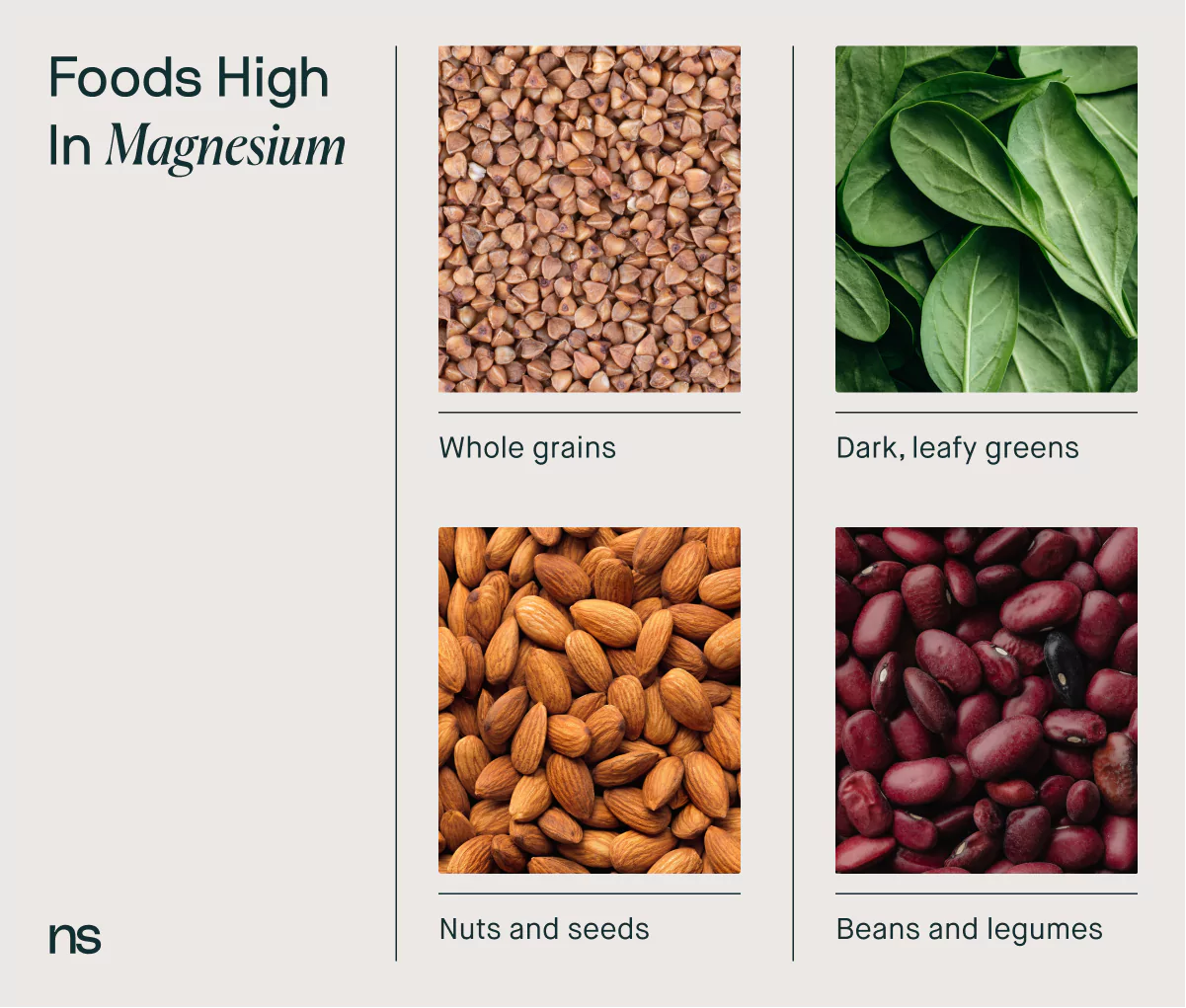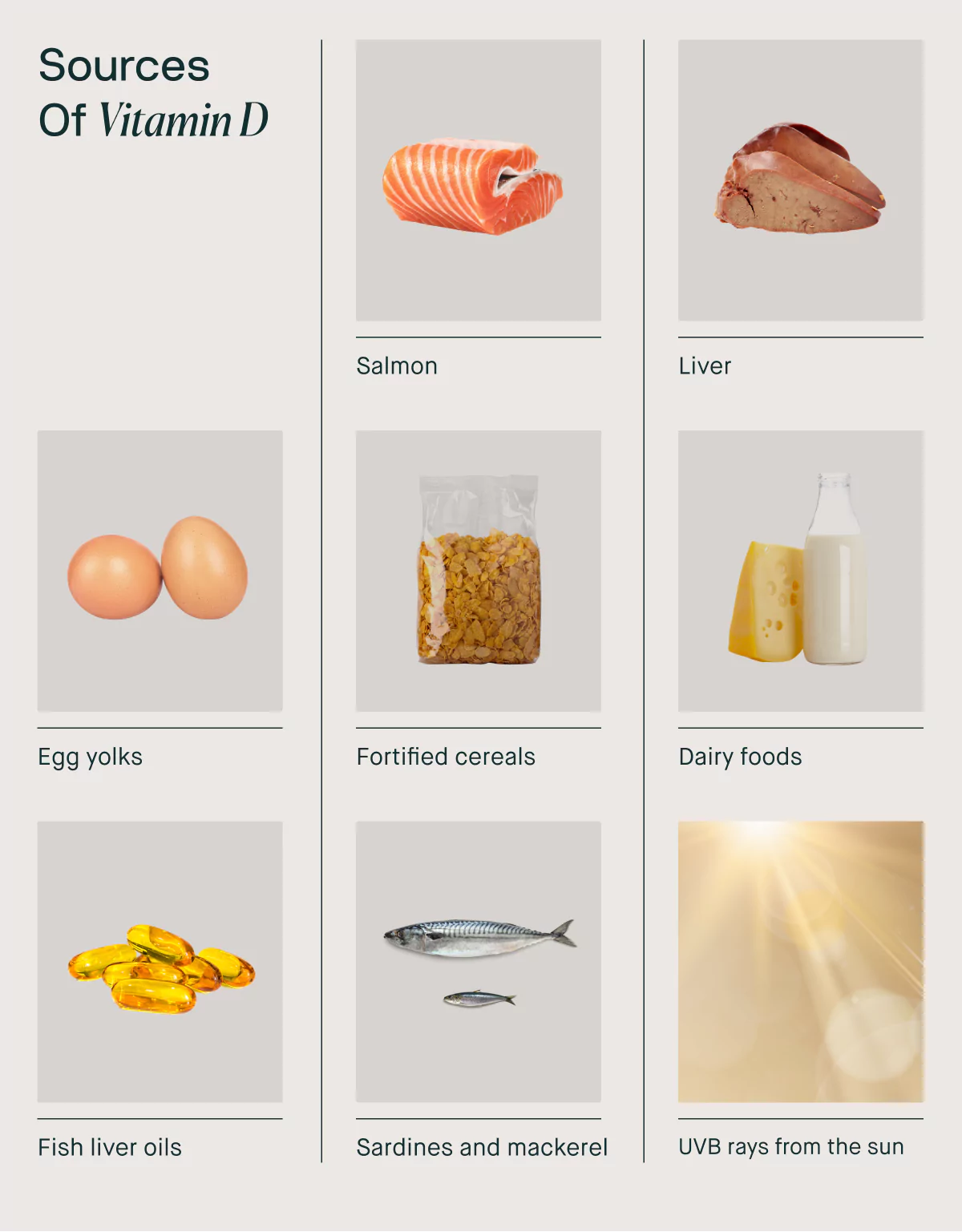Vitamins & Minerals For Weight Loss: What You Need to Know

Key Takeaways
According to the latest research, Americans spend an estimated $2.1 billion a year on weight-loss dietary supplements. Most experts agree, however, that foundational diet and lifestyle changes like monitoring your nutrient and calorie balance as well as getting the right amount of physical activity are the best ways to lose weight and support a healthy weight over time.
Making changes to support a healthy weight loss journey can feel difficult for some people. If that’s you, you may find yourself looking to supplements as a faster way to reach your weight loss goal with less work involved.
But before you spend your dollars on expensive supplements, let’s find out if they really work when it comes to helping you shed pounds.
Best Vitamins and Minerals for Weight Loss

When it comes to effective weight loss tactics, can taking specific vitamin or mineral supplements help with fat burning, boost metabolic rate, or function as an appetite suppressant? The simple answer is likely no.
All vitamins and minerals are needed by your body in the proper amounts and ratios to help your metabolism operate optimally. These nutrients work in an orchestra with one another. Singling out a few specific vitamins and minerals may not be as important as ensuring you are meeting your needs across the board.
Furthermore, if you’re consuming a diet rich in vitamins and minerals to meet your individual needs, there’s no evidence that consuming excess will offer any special health or weight loss benefit.
Why do some believe that B vitamins, magnesium, vitamin D, and iron are particularly helpful in losing weight? Do these nutrients have something special to contribute to weight loss?
Let’s take a look at each one to ease any confusion. Keep in mind, however, that you should always consult a professional healthcare team or seek medical advice from your doctor before taking any supplements.
B Vitamins

B vitamins have some individual differences, but many of them will participate in similar chemical reactions in your body. Sometimes labeled a “B Complex” group, these vitamins include:
- Thiamin (B1)
- Riboflavin (B2)
- Niacin (B3)
- Pantothenic acid (B5)
- Pyridoxine (B6)
- Biotin (B7)
- Folate or folic acid (common form in supplements) (B9)
- Cobalamin (B12)
The reactions involving B vitamins often have to do with the processing of carbohydrates, proteins, and fats for energy. Some animal studies with rodents have found that added B vitamins might alter enzyme activity and slow weight gain in a high-fat diet.
However, there are many concerns about how these studies have been conducted. For example:
- Baseline nutrient intake, including B vitamin content of the high-fat experimental diet, was not controlled for. This means we can’t know if the added B vitamin supplements were only “beneficial” because the rats’ diet was already deficient in these nutrients to begin with.
- These studies were not done in humans.

Diets deficient in B vitamins may increase the risk of many health-related concerns and conditions, such as:
- Anemia
- Neurological conditions
- Problems managing weight
- Problems with fertility or fetal development disorders
- Hair and skin disorders
- Fatigue
- Mood imbalances
The Bottom Line
Being deficient in B vitamins can be harmful to your metabolic health and overall wellness. However, avoiding excessive intake is also important.
Eating a diet rich in whole foods from the list below can go a long way in supporting your B vitamin status. Since many B vitamins are found in protein-rich foods, inadequate intake of protein may predispose someone to B vitamin deficiency.
Regular high alcohol intake may also pose a risk for deficiency.
There is also no evidence that consuming extra B vitamins above the amount needed for nutrient adequacy will have any beneficial effect on fat loss or health.
Foods rich in B vitamins include:
- Lean meats and seafood
- Organ meats
- Eggs
- Beans and legumes
- Whole grains
- Leafy greens, fruits, and vegetables (for folate in particular)
If you consume a plant-based diet, you may be at risk for deficiency in vitamin B12, which is found in animal products.
Magnesium

A mineral with many functions, magnesium is a multi-tasker. According to the National Institutes of Health’s Office of Dietary Supplements, magnesium acts as a cofactor for hundreds of enzymes involved in energy production, DNA and protein production, and ion transport.
It even has a structural role, helping to form the bone matrix, chromosomes, and cell membranes in your body. Magnesium deficiency can impair bone health, detoxification, cellular repair, glucose and insulin regulation, and energy production. But does magnesium help with weight loss?
One 2013 correlational study published in PLOS ONE found that high intake of magnesium through foods was associated with low incidence of insulin resistance. A number of other studies have found magnesium may have a beneficial effect on glucose and insulin regulation.
The Bottom Line
Though magnesium may have many supportive effects on metabolic health, there’s no evidence that consuming magnesium in amounts above and beyond what is needed for adequacy will result in added benefit.
Many studies that found a beneficial effect in magnesium supplementation also did not control for dietary intake of magnesium. This means that dietary interventions with magnesium-rich foods may likely have offered the same positive outcome.

Vitamin D
Vitamin D is one of four fat-soluble vitamins—the others being vitamins A, E, and K. Vitamin D helps regulate calcium balance in the body and is crucial for bone health as well as supporting immune health.
So, how did vitamin D come to be associated with weight loss? Studies show that a higher body fat percentage may be associated with lower blood levels of vitamin D.
One study argued that once vitamin D levels in obese individuals are adjusted for body size, there’s in fact no difference between levels in obese and non-obese individuals. On a related note, some researchers have pointed out that body weight changes themselves may impact vitamin D levels in the body.
One study found that even small amounts of weight loss led to a modest increase in blood levels of vitamin D, while another found that improving vitamin D levels in people with poor vitamin D status may improve weight loss outcomes.
This means that if your vitamin D levels are already very low or indicate a risk for deficiency, boosting vitamin D through foods, sun, or supplements may be beneficial.
The Bottom Line

If you're deficient in vitamin D, your risk for negative health consequences—including obesity—may increase. However, currently there is no evidence that those who have adequate serum levels would benefit from taking more vitamin D.
This means that if your vitamin D serum levels are looking good, there’s likely no benefit to health or weight loss in taking higher doses of vitamin D. If you want to get a natural boost of vitamin D, here are some of the best ways to do so:
- Spend time in the sun: Vitamin D is unique among all of the vitamins in that most of us can synthesize it in its active form from UVB rays.
- Eat plenty of these foods: Salmon, sardines, and mackerel, fish liver oils, liver, egg yolks, fortified cereal and dairy foods.
Iron

Some research has revealed a connection between iron levels and obesity. Researchers believe that obesity’s pro-inflammatory state may disrupt how iron is absorbed and used by the body.
However, the exact mechanisms aren’t entirely clear and more research is still needed.
The Bottom Line
Blood tests for assessing iron status are one of the ways for you and your doctor to determine whether or not iron deficiency is a concern for you. These tests may include hemoglobin, ferritin, transferrin, total iron binding capacity (TIBC), and mean corpuscular volume (MCV).
If your doctor has diagnosed you with iron deficiency, it may be a good idea to consider ways of boosting iron in your diet. Foods rich in iron include:

Keep in mind, however, that plant-based iron sources will contain non-heme iron, which may not be as easily absorbed as heme sources of iron. Consuming additional vitamin C-rich foods (such as citrus) alongside may help boost absorption.
If you are wondering whether or not you are meeting your nutritional needs and how that might be impacting your weight loss goal, consider working with a personal dietitian at Nutrisense. Our team of expert dietitians are trained in being able to assess nutrient balance of your diet and help you determine if your current approach is meeting your needs.
Weight Loss Supplements
Aside from vitamin and mineral supplements, the list of additional supplements that claim to increase fat loss is quite long. The truth is that there isn’t sufficient research to back up the claims for the majority of these supplements.
For example, there’s no good evidence to show that the following popular supplements help promote weight loss safely and effectively:
- Bitter orange (synephrine)
- Conjugated linoleic acid (CLA)
- Chromium picolinate
- Fucoxanthin
- Garcinia cambogia
- Capsaicin
- Glucomannan
- Hoodia
- Forskolin
Supplements vs. Whole Foods: 3 Things to Know
Research shows that there may be many health benefits when building a whole foods-based foundation for a balanced diet. It’s also possible that a whole foods-based approach to nutrition will help you avoid some of the side-effects associated with certain supplement types and dosages.
Some research released in 2014 from the World Journal of Diabetes suggests that excessive intake of supplemental vitamins and minerals may even be linked to weight gain and obesity.
Here are some reasons why opting for meeting your nutrient needs from whole foods first may be beneficial as part of a healthy lifestyle:
- The whole food matrix delivers a synergistic blend of nutrients not found in supplements
- Nutrients in supplemental form tend to be in higher concentrations that your body may have a harder time processing compared to whole food forms
- Some supplements may bring added health risks
Whole Foods Have a Synergistic Relationship
Whole foods provide a blend of many nutrients and compounds such as vitamins, minerals, dietary fiber, phytonutrients, essential fatty acids, and other macronutrients not present in a single vitamin supplement or multivitamin.
Together, they form a complex relationship and this relationship isn’t able to be fully replicated by supplements.
The Dose Matters
Whole foods deliver nutrients in physiologically appropriate amounts that may allow your body to process and absorb them more effectively. Many supplements supply nutrients in much higher concentrations compared to whole food sources.
Both too much and too little of any nutrient can cause a negative effect in the body. This is what’s known as the dose-dependent effect. When we eat a balanced whole foods-based diet, it’s much more difficult to develop nutrient deficiencies or overdo specific nutrients.
Risks of Using Vitamin and Mineral Supplements
Many studies have looked at how the health risks of specific supplements might differ from their whole food counterparts. Clinical trials have found that higher concentrations of a single or multi-vitamin could even possibly be harmful.
For example, vitamin A supplements may be implicated in reducing bone density and increasing hip fracture and vitamin E in hemorrhagic stroke. Research has also shown that whole food-based phytonutrients may be superior to supplement versions.
In the case of lycopene, a phytochemical found in tomatoes, clinical trials have suggested that supplements do not perform as well as the whole food versions in supporting cardiovascular health.
There are also some concerns about how supplements are assessed for quality. Unlike drugs, dietary supplements do not require premarket review or approval by the FDA. Though some supplement manufacturers have high quality control standards, this isn’t true for many.
Make sure to thoroughly research the supplements you purchase, or seek advice from your nutritionist or doctor for guidance.
Find the right Nutrisense programto turn insight into progress.
Go Beyond Glucose Data with Nutrisense
Your glucose can significantly impact how your body feels and functions. That’s why stable levels are an important factor in supporting overall wellbeing. But viewing glucose isn't enough. Nutrisense, you’ll be able to learn how to use your body's data to make informed lifestyle choices that support healthy living.
One-to-one coaching
Sign up to access insurance-covered video calls to work with a glucose expert: a personal registered dietitian or certified nutritionist who will help tailor your lifestyle and diet to your goals.
Monitor and measure what matters
With the Nutrisense CGM Program, you can monitor your glucose with health tech like glucose biosensors and continuous glucose monitor (CGM)s, and analyze the trends over time with the Nutrisense App. This will help you make the most informed choices about the foods you consume and their impact on your health.
Find your best fit
Ready to take the first step? Start with our quiz to find the right Nutrisense program to help you take control.

Heather is a Registered and Licensed Dietitian Nutritionist (RDN, LDN), subject matter expert, and technical writer, with a master's degree in nutrition science from Bastyr University. She has a specialty in neuroendocrinology and has been working in the field of nutrition—including nutrition research, education, medical writing, and clinical integrative and functional nutrition—for over 15 years.




